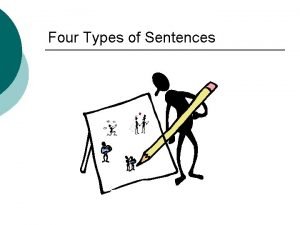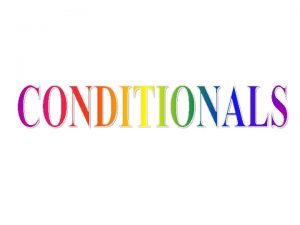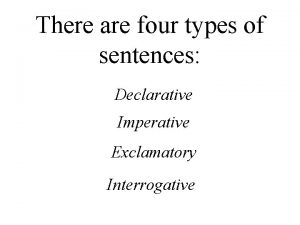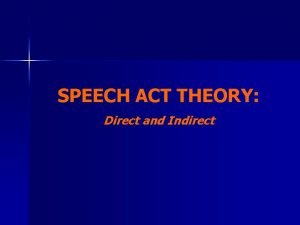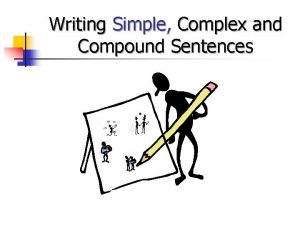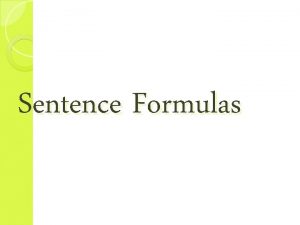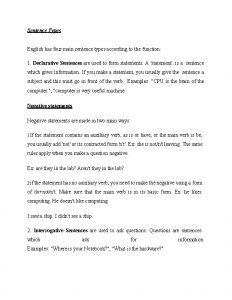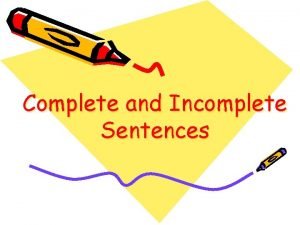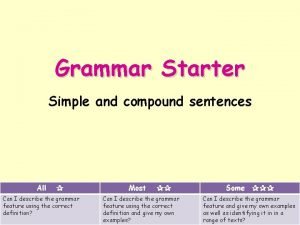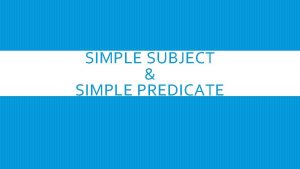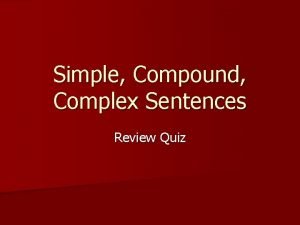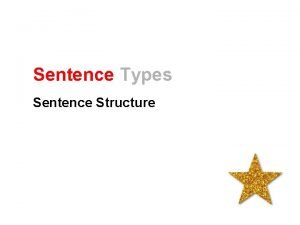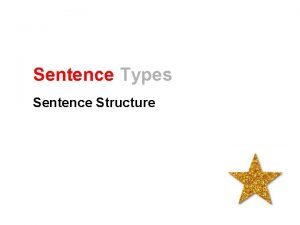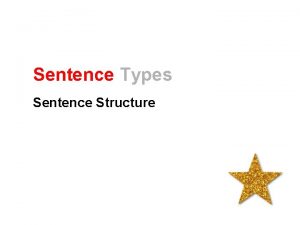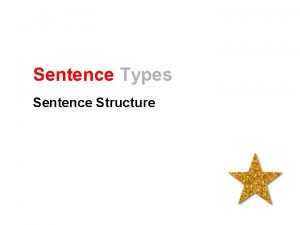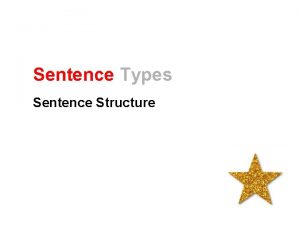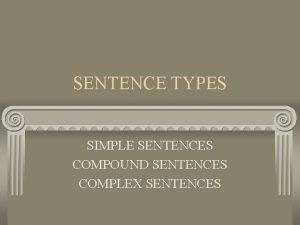Four Types of Sentences 1 Simple Sentence A












- Slides: 12

Four Types of Sentences

#1: Simple Sentence ¡ A simple sentence has one subject and one verb ¡ I like to study grammar. A simple sentence is also called an independent clause. ¡ An independent clause ends with a period or semicolon. ¡

Simple sentence One subject I love you. One verb Independent clause: only one subject and one verb

#2: Compound Sentence ¡ A compound sentence is made up of two or more simple sentences joined by one of the following: ¡ A comma and one of the FANBOYS l ¡ A semicolon l ¡ I like to study grammar, and I love this class. I like to study grammar; I love this class. A semicolon and a transitional l I like to study grammar; therefore, I love this class.

Compound sentence Independent clause I love you, and you love me. Independent clause Two independent clauses joined together

#3: Complex Sentence ¡ A complex sentence is a simple sentence (independent clause) to which a part of a sentence (dependent clause) has been added. l l Because I like to study grammar, I love this class because I like to study grammar.

Complex sentence Dependent clause Because you love me, I love you. Independent clause A dependent clause joined to an independent clause. (The dependent clause needs the rest of the sentence for support. )

Dependent clause Fragment! Because you love me. A dependent clause contains a subject and verb. It begins with a subordinating conjunction, and thus it does not express a completed thought. A dependent clause is also called a subordinate clause. Dependent clauses, like babies, cannot stand alone.

A Tip on Punctuation ¡ Since dependent clauses are only part of a sentence, you can never connect them to another sentence with a semicolon. Semicolons are only used between two independent clauses. l l I have loved you for years ; although I never admitted it. No! I have loved you for years, although I never admitted it. OK

#4: Compound/Complex Sentence A compound/complex sentence is the last and most complicated type of sentence. ¡ It contains at least one dependent clause and at least two independent clauses. ¡

Compound complex sentence Dependent clause Because we are a family, I love you, and you love me. 2 independent clauses A dependent clause added to two or more independent clauses

Every sentence will fit into one of these four categories: Simple Compound Complex Compound/ complex
 Compound and complex sentence
Compound and complex sentence Four types of sentence structure
Four types of sentence structure Four types of conditional sentences
Four types of conditional sentences The four types of sentences
The four types of sentences Identify the type of sentence
Identify the type of sentence Irrelevant in a sentence for a child
Irrelevant in a sentence for a child The cat crept through the dark house.
The cat crept through the dark house. Sentence formulas
Sentence formulas Four main sentence types
Four main sentence types Incomplete sentences examples
Incomplete sentences examples Two simple sentence
Two simple sentence Simple subject and predicate examples
Simple subject and predicate examples Compound complex sentences quiz
Compound complex sentences quiz

